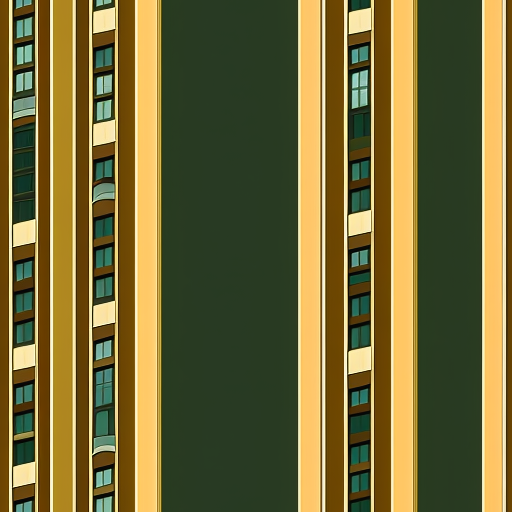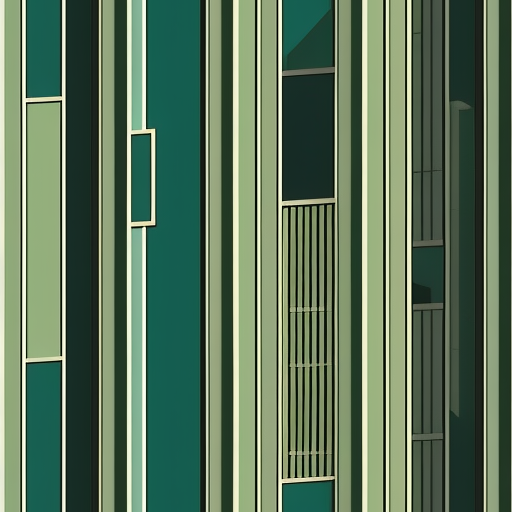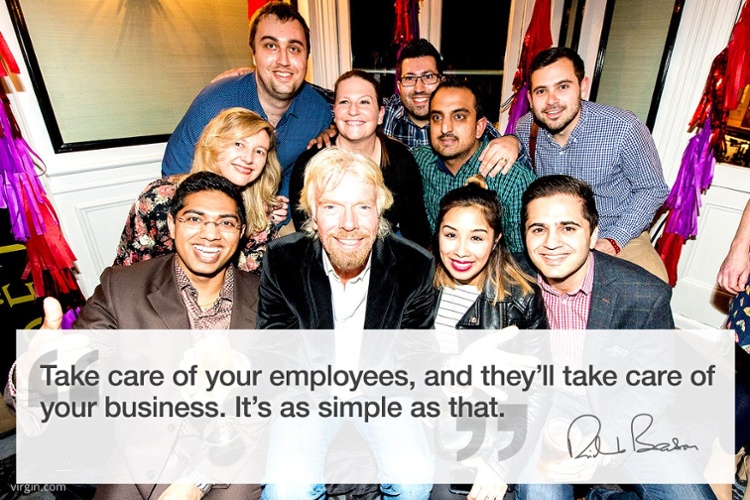
he hospitality industry is one the of the oldest industries in the world, often grounded by tradition. With processes, procedures, and a hierarchy all working together in the background to ensure all the million and one things that could go wrong with a guest don’t.
Yet, there is still room for improvement.
One important question that comes to mind is how do you introduce technology to a hard job such as housekeeping, without slowing down their workflow and making things harder? (and for those who have never cleaned a hotel room, you won’t fully understand what I mean).
Think about this statement from Richard Branson, “If you take care of your employees, they will take care of your business.” To achieve an extraordinary guest experience you must abide by this simple, yet powerful statement. You’re probably thinking easier said than done.
While that statement looks incredible feasible on paper, it doesn’t account for the random problems and request that are likely to occur, unless technology is added to the mix.

Hotel Housekeeping Communications
Imagine this scenario:
“Is room 209 ready? The guest is waiting in the lobby!” says the front-desk frantically.“It’s only 12:00, the room will be ready by 15:00” says the housekeeper frustratedly.
A little later, the phone in room 209 rings again, this time nobody is answering.
These are common conversations that occur in hotels, the front desk calls the inspector who then has to check with the housekeeper to see if the room is clean. If it’s not clean, the inspector quickly has to reassign rooms on the fly to ensure that the waiting guest is taken care of immediately.
No matter how you look at the situation, it’s not an ideal environment for your staff.
Adding in these high priority changes and interruptions, the already tough job of cleaning rooms instantly became tougher. And even worse, sometimes these rooms are left in subpar conditions causing distress to your guest.
Yet communication is a necessity. It isn’t the communication itself that is wrong (though it often feels that way) but the interruptions.
To make things worse, the constant ping-pong communications that bounce from one to the other, often lacking the right information and worsening the situation. Take a look at this example.
Is the room ready?
Yes. I just checked the room it isn’t ready. I thought you meant the other one. No, I meant this one. Oh ok. So when is it ready? I need a little more time. Well, how long? 10 minutes. 10 real minutes or “10 minutes” About 20 minutes actually. Etc.
And fixing that required analyzing much more than chatter.
Efficient Housekeeping Communications
To ensure the housekeeping communications are efficient we had to fully understand what the content of the communications contains.
Building another Slack clone or WhatsApp group chat wasn’t the solution, we had to build a tool that would be a conduit for work.
We changed the way communication was done. The idea entailed that all conversations would be automated so the staff could focus on getting their work done without being interrupted and having one autonomous message, which leaves no room for guessing what that person was trying to explain.
For example, the inspector assigns the rooms to their staff, the housekeepers receive their assigned rooms in the priority they need, do their work, and select complete using their smartphone when they are done. The maid should never have more than 3 taps making their workflow seamless and uninterrupted.
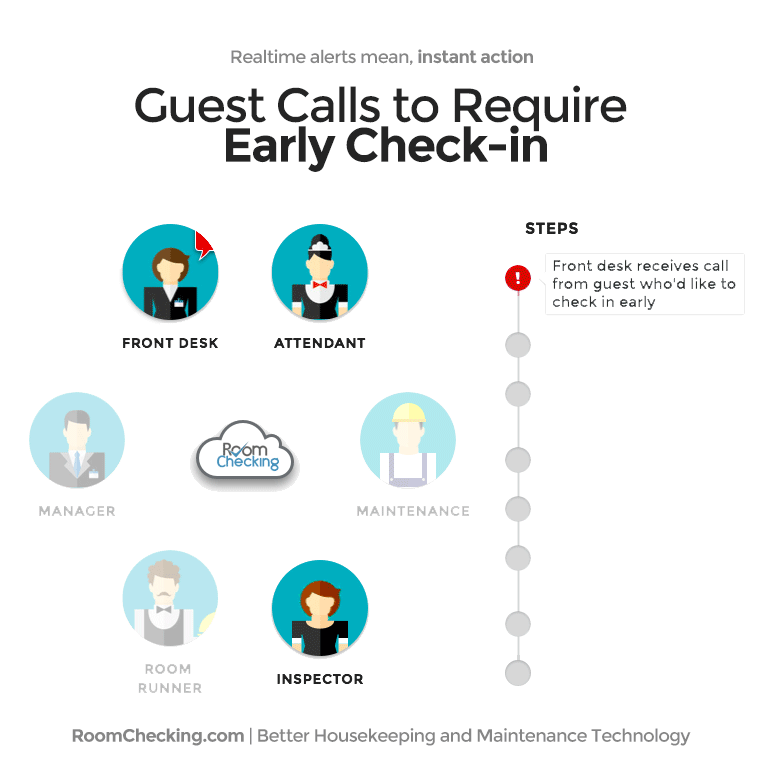
If rooms need to be reassigned due to waiting guests in the lobby, the Inspector has the ability to quickly reassign the room to the housekeeper, making the room a priority, with the click of a button on their tablet. No phone calls were frantically made, the housekeeper simply got a pop-up message alerting them they have a new priority room to clean. As soon as the housekeeper is finished cleaning the room, they simply select the complete button, the front desk immediately gets a notification that the room is clean and the guest can be sent to their room.
RoomChecking gives the Inspector and the Front Desk peace of mind. Instead of worrying about the details of who specifically is assigned to each task or each room cleaning, they can focus on ensuring the guest is satisfied and trust the system is working in the background.
When the housekeeper notices an issue that maintenance needs to fix, they can simply assign a task to the maintenance team. The inspector can inspect to ensure the maintenance task was completed. This means automated routing, eliminating the need for radios or groups receiving updates for every single task including the ones that are irrelevant for them. Or even worse, calling multiple people to find out who should take care of this one issue.
Synchronous or Asynchronous Housekeeping Technology
There’s the concept of synchronous tasks versus asynchronous tasks. Synchronous happens at the same time in multiple places, whereas there asynchronous or linear tasks happen one after the other.
For instance, when a room is cleaned, but still needs to be verified, then gets verified but needs a maintenance issue fixed this is an example of synchronous. Asynchronous is when there are hundreds of rooms that need to be clean and the most efficient way is to clean one right after another without stopping or waiting for something else to happen.
Our tasking system is built to assign tasks to the right person at the right time. This allows staff to move on to the next tasks without having to wait for the person to acknowledge the receipt of the message. If a room needs to be cleaned, the housekeeper gets notified and once they complete their job they can move on to the next assigned room.
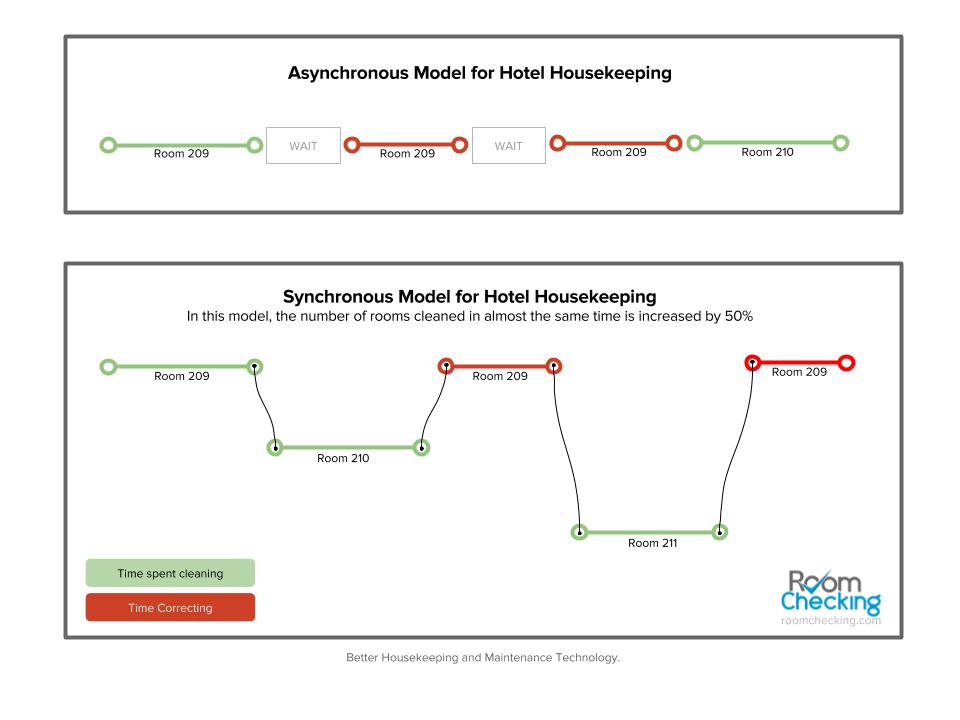
Another example is when the maintenance receives a notification they have been assigned a task, once this task is complete, they are able to hit complete on their smartphone alerting the inspector that this task has been complete. The inspector can then release the room to the guest. No need to call or interrupt a second maintenance person who is busy on a ladder in another room doing a different task. By assigning tasks correctly we make the communication efficient and other staff members can focus on their tasks without constant interruptions.
Working Smarter, Not harder
When a great system is implemented what happens is Housekeeping and Hotel Maintenance staff who have more time to get their work done. They are empowered to prioritize their time themselves because they know what to expect and don’t have the burden of the stress that someone is going to interrupt their work every few minutes.
This drastically improves the guest overall work satisfaction allowing them to be happier at work. This happiness naturally shines through when they are working with the guests. And the result is better guest satisfaction because they are able to deliver an extraordinary experience.
That makes all the difference.
